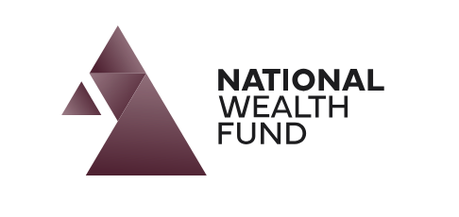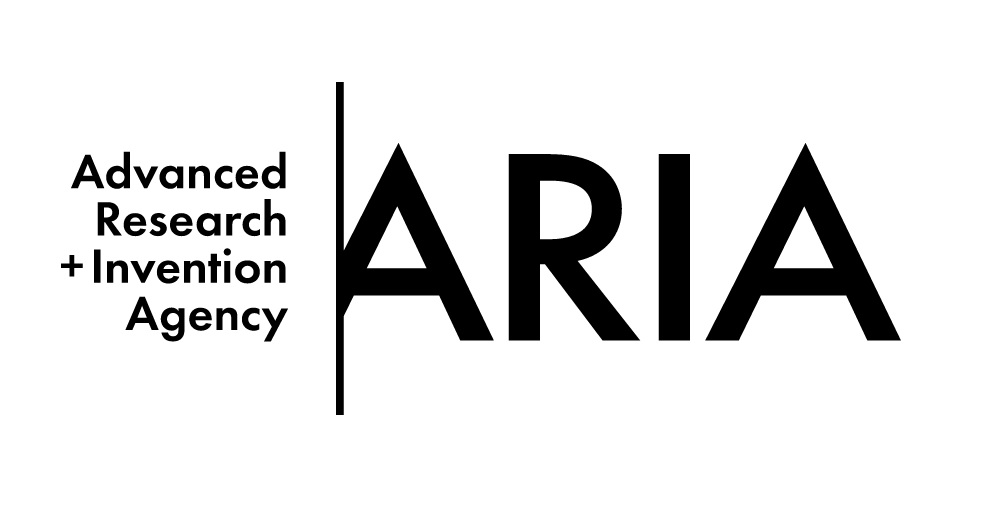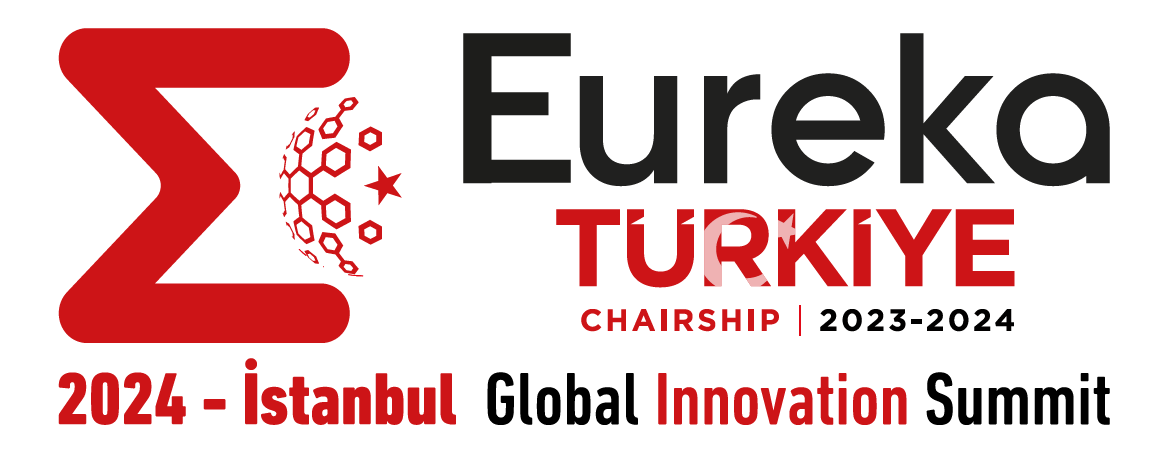UK Space Agency Launches Innovation Funding Call
The UK Space Agency has unveiled the second call for the National Space Innovation Programme (NSIP), a strategic initiative designed to propel the nation's space industry to new heights. This article delves into the intricacies of NSIP Call 2, exploring its objectives, funding opportunities, thematic focus, eligibility criteria, application process, and the broader implications for the UK's space ambitions.
Introduction to the National Space Innovation Programme (NSIP)
Launched as a pivotal component of the UK's National Space Strategy, the NSIP aims to position the country as one of the world's most innovative and attractive space economies. By providing co-funded grants, the programme seeks to de-risk high-reward projects, facilitating the development of cutting-edge space technologies, applications, and services. The overarching goal is to catalyse investment, drive innovation, and capture significant market share in the rapidly evolving global space industry.
Objectives and Strategic Goals of NSIP Call 2
NSIP Call 2 has been developed to expand the UK's portfolio of space innovations, aligning with the National Space Strategy's vision. The primary objectives include:
- Catalysing Investment: The programme aims to secure contract revenue and capital into the UK space sector, targeting an impressive return of 5-8 times the value of NSIP investment by 2030.
- Driving Innovation: By supporting projects that achieve an average improvement in Technology Readiness Level (TRL) of two or more, NSIP seeks to elevate the technological maturity of supported initiatives over their lifespan.
- Capturing Market Share: The focus is on generating new products and services that can be sold into the fastest-growing and highest-potential space markets by 2030, thereby enhancing the UK's competitive edge globally.
Funding Opportunities and Project Strands
Under NSIP Call 2, the UK Space Agency has earmarked at least £17 million for co-funded grants, structured into two distinct strands:
- Kick Starter Projects: Aimed at early-stage innovations with TRL 1-4, these projects emphasise highly disruptive or novel proposals. Applicants can request grant funding between £150,000 and £1,000,000, with a maximum project duration of 16 months.
- Major Projects: Focused on the commercialization and growth of particularly lucrative ideas, these projects target higher TRL levels, aiming to bring mature technologies closer to market readiness.
The allocation of funds is designed to provide an end-to-end support package, assisting projects across the notorious "valley of death" in innovation, facilitating their journey from conceptualization to commercial success.
Thematic Focus: Space Data for Earth Applications
While NSIP Call 2 maintains an open approach to funding, encouraging proposals across a broad spectrum of space technologies, there is a strategic emphasis on the theme of "Space Data for Earth Applications." Up to 30% of the Call 2 budget is dedicated to projects that seek to deliver capabilities and applications utilising satellite data to benefit UK citizens and stimulate economic growth. This thematic focus underscores the UK's commitment to harnessing space technology to address terrestrial challenges, enhancing sectors such as environmental monitoring, agriculture, urban planning, and disaster response.
Eligibility Criteria and Application Process
NSIP Call 2 is open to a diverse range of UK-based entities, including companies, universities, and research organizations. To manage the anticipated high level of interest and ensure a streamlined selection process, the UK Space Agency has implemented a two-stage application procedure:
- Expression of Interest: Prospective applicants are required to complete an Expression of Interest form by 23rd April 2025.
- Outline Proposal Submission: Following the Expression of Interest, applicants must submit their Outline Proposal Application forms by 11:59 pm on 8th May 2025 to [email protected].
Successful candidates from the Outline Proposal stage will be invited to submit Full Proposals, with approximately 50 applicants expected to proceed to this phase. Detailed guidance on the application process and eligibility requirements is available in the Announcement of Opportunity.
Assessment Criteria and Selection Process
Applications will undergo a rigorous assessment process, evaluating factors such as:
- Innovation and Technical Merit: The novelty and technical feasibility of the proposed project.
- Commercial Potential: The project's viability in terms of market demand and potential for revenue generation.
- Alignment with Strategic Goals: How well the project aligns with NSIP's objectives and the broader National Space Strategy.
- Project Management and Deliverability: The applicant's capability to manage and deliver the project within the stipulated timeframe and budget.
The selection process is designed to identify projects that not only exhibit technical excellence but also demonstrate a clear pathway to commercialisation and market impact.
Broader Implications for the UK's Space Sector
The launch of NSIP Call 2 signifies a robust commitment by the UK government to bolster its space sector, fostering an environment conducive to innovation and commercial success. By strategically investing in high-potential projects and emphasising themes like Space Data for Earth Applications, the UK positions itself to address both national and global challenges through space technology.
Moreover, the programme's focus on catalysing investment and capturing market share reflects an understanding of the economic potential inherent in the space industry. By supporting projects that can attract significant private investment and generate new products and services, NSIP contributes to the creation of high-skilled jobs, stimulates economic growth, and enhances the UK's standing in the international space community.
Creative Industries Innovation Funding Boost
The Department for Culture, Media and Sport (DCMS), in collaboration with Innovate UK, has launched the fourth round of the Create Growth Programme, offering targeted support to high-growth creative businesses across England. This initiative aims to stimulate innovation, foster business scaling, and enhance investor networks within the creative industries. The programme is divided into two distinct competitions: one for small projects and another for large projects.
Overview of the Create Growth Programme
The Create Growth Programme is designed to provide a comprehensive package of support to creative businesses with high-growth potential. By focusing on innovation projects, the programme seeks to help these businesses scale effectively, build robust investor networks, and realise their full potential. The support comprises three complementary strands:
1. Business Support: Tailored assistance aimed at addressing the unique challenges faced by creative enterprises.
2. Finance: Access to funding opportunities to support innovative projects and business expansion.
3. Investor Capacity Building Activities: Initiatives designed to enhance the investment readiness of creative businesses and connect them with potential investors.
The programme targets twelve regions across England, each selected for their vibrant creative sectors:
• Greater Manchester
• Norfolk, Suffolk, and Cambridgeshire
• Northeast of England
• West of England and Cornwall
• Southeast Coast
• Leicestershire, Derbyshire, and Greater Lincolnshire
• Nottingham and Nottinghamshire
• Hull and East Yorkshire
• West Midlands
• West Yorkshire
• Devon
• Hertfordshire
Businesses operating within these regions are encouraged to apply for the competition that best aligns with their project scope and funding requirements.
Competition 1: Small Projects
Objective: To support small-scale innovation projects that can act as catalysts for business growth within the creative industries.
Funding Details:
• Total Project Costs: Between £20,000 and £50,000.
• Funding Coverage: Successful applicants can receive up to 100% funding for eligible project costs.
Eligibility Criteria:
• Business Size: Micro, small, or medium-sized enterprises (SMEs).
• Location: Must be registered or operational in one of the twelve appointed DCMS Create Growth Programme regions.
• Sector: Must operate within the creative industries, focusing on sub-sectors such as advertising, architecture, crafts, design, film, IT, publishing, and music, among others.
Project Requirements:
• The project should introduce an innovative and ambitious idea that presents a clear growth opportunity.
• It must be a new initiative for the business, aiming to create new revenue streams, products, services, or intellectual property.
• The project should demonstrate potential for commercialisation within 12 months of receiving support and include a clear plan for attracting additional private finance.
• It should benefit the wider creative cluster or region in which the business is based.
• The project must be ready to start promptly and offer good value for money.
Application Process:
• Opening Date: 31st March 2025.
• Closing Date: 29th May 2025, 11:00 am.
• Project Start Date: On or after 1st October 2025.
• Project Duration: Between three and six months, concluding by 31st March 2026.
Applicants are advised to ensure their proposals align with the competition's scope and objectives. Detailed guidance on the application process and eligibility criteria is available on the Innovate UK website.
Competition 2: Large Projects
Objective: To support larger, more ambitious innovation projects that can significantly contribute to business scaling and sectoral growth within the creative industries.
Funding Details:
• Total Project Costs: Between £50,000 and £200,000.
• Funding Coverage: Funding is provided according to the size of the business:
o Up to 70% of eligible project costs for micro and small businesses.
o Up to 60% for medium-sized businesses.
• Match Funding Requirement: Applicants must provide match funding to cover the balance of the project costs.
Eligibility Criteria:
• Business Size: Micro, small, or medium-sized enterprises (SMEs).
• Location: Must be registered or operational in one of the twelve appointed DCMS Create Growth Programme regions.
• Sector: Must operate within the creative industries, focusing on sub-sectors such as advertising, architecture, crafts, design, film, IT, publishing, and music, among others.
Project Requirements:
• The project should present an innovative and ambitious idea with a clear growth opportunity.
• It must be a new initiative for the business, aiming to create new revenue streams, products, services, or intellectual property.
• The project should demonstrate potential for commercialisation within 12 months of receiving support and include a clear plan for attracting additional private finance.
• It should benefit the wider creative cluster or region in which the business is based.
DASA Open Call 2025
The Defence and Security Accelerator (DASA) recently announced the launch of its Open Call for Innovation for Calendar Year 2025 (CY2025) - Cycle 1, inviting innovators to contribute groundbreaking ideas aimed at enhancing the UK's defence and security capabilities. This initiative provides a platform for individuals and organisations to propose disruptive solutions that address challenges across the defence and security landscapes, even in the absence of specific requirements.
Understanding the Open Call for Innovation
The Open Call for Innovation is a broad mechanism designed to capture a wide array of innovative ideas that might otherwise be overlooked. It allows innovators to present concepts, technologies, or services that could provide the UK with an edge over adversaries. DASA operates several specific competitions under this umbrella, each targeting distinct areas of interest within the defence and security sectors.
Key Competitions Under the Open Call
For CY2025 - Cycle 1, DASA has opened the following competition:
• Defence Rapid Impact: This competition seeks innovative ideas that can deliver a technology model or prototype demonstration at Technology Readiness Level (TRL) 6 or 7. The goal is to achieve a limited-scale demonstration in the hands of end-users within the context or environment where the solution is expected to be used. Projects should have a realistic prospect of achieving impact within three years from the completion of the project. Proposals are expected to align with strong customer requirements and capability needs.
Funding and Contracting
No specific funding limit is set for the Defence Rapid Impact competition; however, DASA typically expects to fund bids between £100,000 and £250,000. Proposals demonstrating value for money are viewed favourably.
Innovation Focus Areas (IFAs)
While the Open Call welcomes a wide range of innovative ideas, DASA also highlights specific enduring challenges through Innovation Focus Areas (IFAs). These IFAs provide insight into broad topics of interest and seek proposals that address these specific challenges. Typically, IFAs remain open for a minimum of two Open Call Cycles, allowing innovators ample time to develop and submit their proposals.
Submission Deadlines and Cycle Schedule
The Open Call for Innovation operates in cycles throughout the calendar year. For CY2025 - Cycle 1, proposals must be submitted through the DASA Online Submission Service by 12:00 Midday (BST) on 29th April 2025. The schedule for CY2025 is as follows:
- Cycle 1: Closes on 29th April 2025; decisions released by 18th July 2025; feedback released by 25th July 2025.
- Cycle 2: Closes on 1st July 2025; decisions released by 10th October 2025; feedback released by 17th October 2025.
- Cycle 3: Closes on 23rd September 2025; decisions released by 12th December 2025; feedback released by 19th December 2025.
- Cycle 4: Closes on 16th December 2025; decisions released by 27th March 2026; feedback released by 3rd April 2026.
It's important to note that there will be no Open Call competitions open for submission between 12:00 Midday on 16th December 2025 and Midday on 6th January 2026.
Submission Process
Proposals must be submitted via the DASA Online Submission Service, which requires registration for an account. Only proposals submitted through this platform will be accepted. When submitting, innovators are required to include a title, Proposal Value Proposition Statement (PVPS), and a short abstract. This information is used by DASA and Partners Across Government (PAG) to describe the project and its intended outcomes and benefits. As this information can be shared, it should not contain details that may compromise intellectual property.
Why Should Innovators Apply?
The DASA Open Call for Innovation presents a unique opportunity for businesses, academics, and individual innovators to contribute to national security while securing funding and gaining access to government stakeholders. Here are some of the key benefits:
- Funding Without Equity Loss: Unlike venture capital funding, DASA provides grants and contracts without taking ownership in the innovator’s company.
- Direct Engagement with the Ministry of Defence: Successful applicants gain valuable exposure to UK defence and security decision-makers.
- Retention of Intellectual Property: Innovators keep full control over their IP, enabling future commercial opportunities beyond the defence sector.
- Acceleration of Technology Development: Funding and end-user feedback help innovators quickly develop and test their solutions in real-world environments.
- Potential for Follow-on Contracts: Successful projects have the potential to secure long-term defence contracts or additional government funding for further development.
How to Maximise Your Chances of Success
While the Open Call is highly competitive, applicants can improve their chances of securing funding by following these best practices:
- Clearly Define the Problem and Solution: Proposals should clearly articulate the problem being solved, the proposed innovation, and its impact on defence and security.
- Demonstrate Feasibility: Back up claims with data, research, or proof-of-concept demonstrations.
- Align with End-User Needs: Engage with DASA Innovation Partners or defence stakeholders to ensure the proposal meets a real-world need.
- Provide a Strong Project Plan: Outline realistic milestones, deliverables, and cost estimates.
- Ensure Security Compliance: If dealing with sensitive data or technologies, demonstrate how security requirements will be met.
What Next?
Contact RedKnight today to discuss how we can help you secure DASA funding.
Clean Maritime Demonstration Competition 6
The UK government, through Innovate UK and the Department for Transport, has launched the sixth round of the Clean Maritime Demonstration Competition (CMDC). This initiative aims to advance the development and deployment of innovative technologies that reduce greenhouse gas (GHG) emissions in the maritime sector. With a total funding pool of up to £30 million, CMDC Round 6 is divided into three distinct strands:
- Pre-deployment Trials
- Feasibility Studies
- Smart Shipping
Each strand targets specific aspects of maritime decarbonisation, offering tailored support to projects at different stages of development.
- Pre-deployment Trials
The Pre-deployment Trials strand focuses on the design, development, and testing of novel clean maritime technologies. Projects under this category should aim to validate technologies in preparation for full-scale deployment, ensuring they are operationally effective and ready for market introduction.
Key Details:
- Funding Available: Projects can receive grants for eligible costs ranging from £100,000 to £2 million.
- Project Scope: Emphasis is on on-vessel technologies, infrastructure technologies, or a combination of both. The goal is to conduct rigorous pre-deployment testing to demonstrate the viability of these innovations in real-world maritime settings.
- Eligibility: UK-registered businesses of any size can lead a project but must collaborate with other UK-registered organisations. This collaborative approach ensures a comprehensive evaluation of the technology from multiple perspectives within the industry.
Applicants are encouraged to ensure their projects are not primarily focused on Smart Shipping technologies, as these are specifically addressed under a separate strand.
- Feasibility Studies
The Feasibility Studies strand is designed to support projects in the early stages of development. These studies should assess the technical and economic viability of clean maritime technologies, providing a foundation for future real-world demonstrations and deployments.
Key Details:
- Funding Available: Grants are available for projects with eligible costs between £75,000 and £1 million.
- Project Scope: Projects should undertake comprehensive feasibility studies related to on-vessel technologies, infrastructure technologies, skills development, or a combination thereof. The objective is to evaluate the potential impact and practicality of proposed solutions in reducing maritime emissions.
- Eligibility: Open to UK-registered businesses of any size, leading a consortium of other UK-registered organisations. This collaborative framework fosters a multidisciplinary approach to tackling maritime decarbonisation challenges.
It's important to note that projects focusing on Smart Shipping technologies should consider applying under the dedicated Smart Shipping strand.
- Smart Shipping
The Smart Shipping strand aims to fund projects that leverage digital technologies to reduce GHG emissions and improve air quality in the maritime transport sector. This includes the development of autonomous and intelligent shipping solutions that enhance operational efficiency and environmental performance.
Key Details:
- Funding Available: Eligible projects can receive funding for costs ranging from £75,000 to £2 million.
- Project Scope: Focus areas include the development and testing of digital solutions such as autonomous vessel technologies, advanced data analytics for route optimisation, and smart port infrastructure. These innovations should contribute directly to emission reductions and improved air quality.
- Eligibility: UK-registered businesses of any size are invited to lead projects, in collaboration with other UK-registered entities. This ensures a cohesive effort in integrating smart technologies into the maritime industry.
Applicants should ensure their proposals are specifically aligned with Smart Shipping technologies to qualify under this strand.
Application Process and Deadlines
All three strands of CMDC Round 6 close at 11am on Wednesday, 16th April 2025.
Prospective applicants are advised to thoroughly review the specific eligibility criteria and project scopes for each strand to ensure their proposals align with the competition's objectives. Applications must be submitted through the official Innovation Funding Service (IFS) portal before the stated deadline.
Strategic Importance
The CMDC Round 6 is a critical component of the UK's broader strategy to achieve net-zero emissions by 2050. By investing in innovative maritime technologies, the competition seeks to:
- Accelerate Decarbonisation: Facilitating the development and deployment of technologies that significantly reduce GHG in the maritime sector.
- Enhance Competitiveness: Positioning the UK as a global leader in clean maritime solutions, thereby boosting economic growth and creating high-skilled jobs.
- Promote Collaboration: Encouraging partnerships among businesses, research institutions, and government bodies to foster a cohesive approach to maritime innovation.
By addressing various facets of maritime operations—from technological feasibility to smart, data-driven solutions—the CMDC Round 6 aims to create a sustainable and resilient maritime industry for the future.
For detailed information on each strand and guidance on the application process, applicants should refer to the official competition briefs provided by Innovate UK and the Department for Transport:
CMDC Round 6: Pre-deployment trials
CMDC Round 6: Feasibility studies
To discuss your project in more detail, contact RedKnight today.
AgriFood Innovation Showcase 2025
The AgriFood Innovation Showcase 2025, themed "Building a Sustainable Food System," is set to take place on 6th March 2025 in Birmingham. This event aims to bring together innovators, stakeholders, and experts to inspire sustainable solutions, drive collaboration, and shape a healthier, nature-positive food system.
The Significance of the UK Food and Drink Industry
The UK food and drink industry is a cornerstone of the nation's £120 billion farm-to-fork food chain. As the largest manufacturing sector, it contributes £29 billion to the economy and employs approximately 440,000 individuals. However, the industry faces pressing challenges, including environmental sustainability, health concerns, and the need for innovation to ensure a resilient and safe food system that delivers healthier, affordable food.
Who Should Attend?
This event is designed for stakeholders, individuals, and organisations involved at all stages of the food and drink supply chain. Whether you're an innovator seeking to introduce new technologies, a manufacturer aiming for sustainable practices, or a retailer focusing on healthier product offerings, the showcase offers valuable insights and networking opportunities. It's an unmissable occasion for those committed to driving change and shaping the future of this critical sector.
Why Attend?
Attendees will benefit from:
- Cross-Sector Collaboration: Engage with a diverse community to exchange ideas, forge strategic partnerships, and explore innovation opportunities.
- Showcasing Pioneering Products and Technologies: Companies and innovators will present their groundbreaking products and technologies, providing attendees the chance to connect with key industry players, investors, and potential future partners.
- Insights into Funding and Support: Learn about the benefits and impact of working with Innovate UK and Innovate UK Business Connect, including available products and services.
- Facilitated Discussions: Participate in discussions around adopting existing innovative technologies to support the 'net zero journey' in agriculture and food production.
- Supply Chain Connectivity: Connect with various parts of the supply chain to support innovation across its components.
- Research and Development Prioritisation: Identify priority areas for research and development to address current challenges.
- Showcasing Funded Projects: Explore Innovate UK/UKRI funded projects and discover opportunities for further innovation.
- Networking Opportunities: Establish new connections and engage in innovative discussions to work better together.
Event Highlights
The showcase will feature several key sessions:
- Healthy Living and Agrifood System Session: Speakers will share insights on innovation projects that address and impact this area.
- Net Zero Session: Discussions on retailers' and manufacturers' needs around net zero and the challenges they seek solutions for.
- Technologies Session: Experts and innovators will discuss advances in relevant technologies.
- SME Marketplace: An exhibition featuring SMEs, short pitch sessions, and networking opportunities.
- Business Support Zone: Information on available industry support.
- Funding Opportunities: Details on relevant funding opportunities for the sector that are live or upcoming.
- Cross-Industry Collaboration: Opportunities for the cross-pollination of ideas and sparking new innovations.
- Networking: Facilitated introductions and innovation exchanges.
To register your place at the event, click here.
Introducing The National Wealth Fund
The UK government has launched an ambitious initiative, the National Wealth Fund (NWF), aimed at revitalising its economic landscape. Building on the foundation of the UK Infrastructure Bank (UKIB), the NWF is designed to address pressing challenges in clean energy, industrial innovation, and regional economic disparities. With a total capitalisation of £27.8 billion and an expected mobilisation of over £70 billion in private investment, the fund stands as a cornerstone of the UK's economic growth and sustainability agenda.
A Catalyst for Change
The NWF operates as a government-backed impact investor, focusing on areas where private sector financing alone may fall short. By providing catalytic capital and leveraging a diverse range of financial instruments, including equity investments, guarantees, and blended finance solutions, the fund aims to unlock investments that align with the UK’s industrial strategy and climate goals.
Key sectors of focus include:
- Green Hydrogen: Accelerating the transition to low-carbon energy sources.
- Carbon Capture: Enabling significant reductions in industrial emissions.
- Gigafactories: Supporting the production of batteries essential for electric vehicles.
- Ports and Green Steel: Strengthening infrastructure and advancing sustainable industrial practices.
Strategic Goals
The NWF’s strategy is anchored on three primary principles:
- Stability: Creating a predictable environment that encourages long-term investments.
- Investment: Mobilising resources to fill critical gaps in infrastructure and technology development.
- Reform: Streamlining public financial institutions to better align with the needs of investors and project developers.
Through these principles, the fund aims to spur economic growth and ensure regional equity by engaging local governments, devolved administrations, and mayors in identifying and supporting impactful projects.
Governance and Operational Independence
The NWF operates at arm's length from the government, ensuring credibility and market confidence. HM Treasury oversees the fund, while day-to-day operations and investment decisions are managed independently. This structure is intended to strike a balance between strategic alignment with government priorities and operational flexibility.
Expanding Tools and Capabilities
The fund’s financial toolkit includes:
- Debt Instruments: Offering tailored financing solutions to address liquidity issues.
- Equity Investments: Supporting early-stage technologies and scaling up innovative projects.
- Performance Guarantees: Mitigating risks in nascent sectors to encourage investor participation.
- Blended Finance Solutions: Combining public and private resources to achieve broader policy objectives.
These instruments are complemented by a proactive outreach strategy to identify and structure innovative transactions in collaboration with industry leaders, local authorities, and other stakeholders.
Driving Regional Growth
A significant aspect of the NWF’s mission is its regional focus. By partnering with local leaders and aligning with regional growth plans, the fund aims to unlock the economic potential of cities and regions across the UK. This approach is intended to create jobs, foster innovation, and ensure that the benefits of investment are distributed equitably.
Impact and Accountability
To measure its success, the NWF will adopt a robust set of metrics that assess its economic impact, the additionality of its investments, and outcomes across targeted sectors. These metrics will guide the fund in achieving its mission while maintaining transparency and accountability to the public.
Future Outlook
The establishment of the NWF marks a pivotal moment in the UK’s economic strategy. By mobilising private investment and addressing critical infrastructure and industrial needs, the NWF aims to position the UK as a leader in innovation and sustainability. With its ambitious goals and comprehensive approach, the fund is set to play a transformative role in shaping the country’s economic future.
This initiative reflects a forward-looking vision for the UK, blending public and private efforts to build a more resilient, innovative, and equitable economy. As the NWF begins its operations, its impact will likely serve as a benchmark for how governments worldwide can partner with the private sector to achieve shared economic and environmental goals.
For more information, please visit https://www.ukib.org.uk/
Taking a look at the Advanced Research and Invention Agency
The Advanced Research and Invention Agency (ARIA) represents a bold initiative by the UK government to revolutionise the nation's research and development (R&D) landscape. Established to fund high-risk, high-reward scientific endeavours, ARIA aims to propel the UK to the forefront of global innovation by empowering scientists and engineers to pursue groundbreaking projects that have the potential to yield significant societal and economic benefits.
Genesis and Mission
ARIA was formally established in January 2023 with an initial budget of £800 million, following the enactment of the Advanced Research and Invention Agency Act 2022. Inspired by the US Defense Advanced Research Projects Agency (DARPA), ARIA operates with a mandate to support ambitious research projects that traditional funding mechanisms might overlook due to their inherent risks. The agency's mission is to unlock scientific and technological breakthroughs that benefit everyone, recognising that many of society's most important advances have stemmed from those with the foresight to pursue new capabilities that most believed to be unattainable.
Operational Framework
ARIA distinguishes itself through a flexible and dynamic operational model. Unlike conventional funding bodies, it operates independently of UK Research and Innovation (UKRI) and is designed to function with minimal bureaucracy. This autonomy enables ARIA to swiftly allocate resources to emerging research areas and adopt innovative funding approaches, such as inducement prizes and rapid seed funding. The agency's structure is intentionally lean, allowing for agile decision-making and the ability to pursue unconventional research avenues.
Leadership and Governance
ARIA is led by CEO Ilan Gur, a physicist and entrepreneur with extensive experience in translating scientific research into market-ready technologies. Prior to joining ARIA, Gur founded Activate.org, a US-based organisation that empowers scientists and engineers to bring groundbreaking research to market. He also served as a program director at ARPA-E, the US Department of Energy's advanced research agency. Under his leadership, ARIA aims to challenge the traditionally cautious British science funding system by supporting pioneering projects considered too improbable by conventional standards.
The agency's governance structure includes a board of directors comprising distinguished figures from the scientific and business communities. Notably, Matt Clifford serves as the chair of ARIA. Clifford has been instrumental in bridging the gap between government and private companies in the development of cutting-edge technologies, particularly in the field of artificial intelligence (AI).
Funding Strategy
ARIA's funding strategy is centred on empowering scientists and engineers with the resources and freedom to pursue breakthroughs at the edge of the possible. The agency funds projects across the full spectrum of R&D disciplines, approaches, and institutions, seeking to unlock scientific and technological breakthroughs that benefit everyone.
The agency employs a variety of funding mechanisms to support its mission:
- Programmes: ARIA's programmes are directed by Programme Directors, scientific and technical leaders with deep expertise and a focused, creative vision for how technology can enable a better future. These programmes are designed to tackle specific scientific or technological challenges and are the primary means through which ARIA directs its funding.
- Opportunity Seeds: With smaller budgets and less structure than programmes, opportunity seeds support individual research teams to uncover new pathways that could inspire future programmes or might justify additional support as a standalone project. This approach allows ARIA to explore a diverse array of innovative ideas and identify promising research directions.
Current Initiatives
ARIA has launched several initiatives that exemplify its commitment to high-risk, high-reward research:
- Programmable Plants: This initiative explores the potential of engineering plant genomes to address challenges such as food insecurity, climate change, and environmental degradation. By developing programmable plants, ARIA aims to secure a sustainable and thriving biosphere for future generations.
- Safeguarded AI: Recognising the transformative potential of artificial intelligence, this programme focuses on developing technical solutions to ensure that powerful AI systems interact as intended. The goal is to usher in a new era for AI safety, allowing society to unlock the full economic and social benefits of advanced AI systems while minimising risks.
- Robot Dexterity: This programme aims to transform robotic capabilities and unlock a step change in human productivity. By funding cutting-edge research across robotic hardware and advanced simulation, ARIA seeks to demonstrate a paradigm shift in robotic abilities, creating vastly more capable and useful machines.
Collaborative Approach
ARIA emphasises collaboration with a broad spectrum of stakeholders, including academic institutions, industry partners, and other research organizations. The agency engages openly and seeks feedback to refine its programmes and funding strategies. This inclusive approach ensures that ARIA remains responsive to emerging scientific opportunities and societal needs.
Challenges and Outlook
While ARIA's mission is ambitious, it faces challenges inherent in funding high-risk research, including the potential for failure in many of its funded projects. However, the agency embraces this risk, understanding that the pursuit of audacious goals can lead to transformative successes that outweigh the setbacks. By fostering a culture that tolerates failure as a pathway to innovation, ARIA aims to inspire the next generation of scientists and engineers to push the boundaries of what is possible.
For more information about ARIA, please visit their website here.
UK-India Collaboration Funding for Net Zero Technologies
In an ambitious move to tackle the global challenge of achieving net-zero emissions, Innovate UK, part of UK Research and Innovation, has partnered with the Department of Science and Technology (DST), Government of India, to launch a competition that promises to catalyse groundbreaking advancements in Net Zero Technologies. With a substantial investment of up to £2 million, this initiative invites collaborative research and development (CR&D) projects from the brightest minds and most innovative businesses across the UK and India.
A Shared Vision for a Sustainable Future
The competition highlights the power of international collaboration in addressing climate challenges. With a focus on business-led, bilateral projects, this initiative aims to support the development of transformative technologies that can significantly reduce carbon emissions. By uniting UK and Indian expertise, the program seeks to accelerate progress toward a sustainable future while fostering economic growth in both nations.
Key Objectives of the Competition
The competition is structured to deliver impactful outcomes, emphasising the following objectives:
- Disruptive Innovation: Projects must demonstrate groundbreaking ideas that lead to the development of new products, processes, or services.
- Economic Impact: Initiatives should outline clear pathways for commercialisation and economic benefits in both countries.
- Collaborative Value: The partnership must showcase the advantages of bilateral collaboration, ensuring balanced contributions from both nations.
- Net Zero Focus: Proposals should directly contribute to achieving net-zero emissions, addressing key areas such as renewable energy, advanced materials, decarbonising manufacturing, and more.
How the Competition Works
The process ensures fairness, transparency, and genuine collaboration:
- Dual Applications: UK participants must apply via the Innovation Funding Service (IFS), while Indian partners submit a parallel application to the Technology Development Board (TDB).
- Independent Selection: Both Innovate UK and TDB must independently select the project for it to receive funding, ensuring mutual alignment on priorities and standards.
- Collaborative Teams: Each consortium must include at least one registered business from both the UK and India, with no single partner undertaking more than 70% of the project work.
Funding and Eligibility
Grant Details:
- UK Grant Range: £100,000 to £300,000
- Project Duration: 6–18 months, starting by 1st September 2025 and ending by 31st March 2027.
Eligibility Criteria:
- UK lead applicants must be registered businesses and involve at least one SME.
- Indian partners must apply separately through TDB and are not eligible for funding from Innovate UK.
- Proposals must focus on activities undertaken primarily in the UK and India, ensuring a balanced and equitable partnership.
Thematic Areas for Innovation
To maximise impact, the competition invites proposals in specific priority areas that align with the overarching goal of achieving net zero. These include but are not limited to:
- Advanced Materials: Developing materials that enhance energy efficiency or reduce carbon footprints.
- Decarbonising Manufacturing: Innovating processes to minimise emissions in industrial production.
- Renewable Energy Sources: Advancing technologies for clean, sustainable energy generation.
- Energy Storage and Distribution: Improving systems for storing and transmitting renewable energy.
- Decarbonising Mobility: Innovating transportation solutions to reduce greenhouse gas emissions.
This thematic focus ensures that the funded projects contribute meaningfully to addressing critical challenges in achieving net zero.
Why This Competition Matters
- Global Impact Through Collaboration: The programme highlights the importance of leveraging diverse expertise to solve global challenges. By combining the UK’s advanced research capabilities with India’s dynamic innovation ecosystem, this initiative exemplifies the potential of cross-border partnerships to drive meaningful change.
- Economic Growth and Market Opportunities: Beyond environmental benefits, the competition offers participants a unique opportunity to tap into new markets. With clear pathways to commercialisation, the projects are expected to generate substantial economic returns and foster sustainable growth in both countries.
- Advancing Technological Frontiers: By supporting high-risk, high-reward projects, the program encourages participants to push the boundaries of existing technologies, ensuring that the UK and India remain at the forefront of the global innovation landscape.
Application Process
- Prepare Your Proposal: Develop a compelling project idea that aligns with the competition’s themes and objectives. Ensure that it includes a clear business plan, financial viability, and potential for significant economic and environmental impact.
- Build Your Consortium: Collaborate with at least one registered business in India that is independent of the UK partners.
- Submit Applications:
o UK participants: Apply via the IFS portal.
o Indian participants: Submit a parallel application to the TDB program. - Demonstrate Collaboration: Showcase a balanced technological contribution from all partners and ensure the project is truly bilateral.
- Meet the Deadlines: Ensure your application is submitted before 11 am (UK time) on Wednesday, 12th February 2025.
Key Considerations for Success
To stand out in this competitive process, applicants should focus on:
- Clear Commercial Intent: Highlight how the project results will be commercialised and generate value in domestic and global markets.
- Robust Collaboration: Demonstrate genuine cooperation between UK and Indian partners, with balanced contributions and shared benefits.
- Sustainability Impact: Provide evidence of how the project will contribute to reducing carbon emissions and achieving net zero.
- Financial Soundness: Ensure the project offers good value for money with well-defined financial plans and timelines.
A Portfolio Approach
Innovate UK and TDB aim to fund a diverse range of projects to ensure a balanced portfolio across different technologies and sectors. This approach maximises the competition’s impact, fostering innovation in multiple areas critical to achieving net zero.
For more information about this opportunity, contact RedKnight.
Climate Change Adaptation and Smart Cities Funding Opportunities
Event Details:
- When: 20/06/2024, 10:00 AM - 12:00 PM BST
- Where: Online
Event Overview: EU Missions aim to provide innovative solutions to some of our greatest challenges with ambitious goals set for 2030. This webinar will focus on opportunities for UK organisations under two specific Horizon EU Missions:
- 100 Climate-Neutral and Smart Cities by 2030.
- Adaptation to Climate Change: Support at least 150 European regions and communities to become climate resilient by 2030.
The Horizon Europe EU Missions Work Programme 2023-2025 details the upcoming calls for project proposals and budget allocations.
Why Attend?
This Innovate UK event is designed to:
- Inform potential UK applicants about new topics in the EU Missions and Cross-cutting Activities work programme 2024.
- Facilitate partnerships with other potential applicants.
The UK National Contact Point and Horizon EU Missions representatives will provide detailed information on the funding areas in the Annual Work Programme for 2024. This is a chance to identify relevant call topics and start planning and building consortia for future submissions. Participants will also have the opportunity to present their technology offers aligned with the Horizon Europe EU Missions Work Programme 2023-2025 priorities.
How to Submit a Pitch: After registering, you will receive an email with instructions on submitting a pitch. Your pitch must be on the provided one-slide presentation template and include:
- The challenge/innovation of your interest
- Your approach
- Your capability offering
- Information on required partners
- Your contact details
Agenda:
- Welcome and Objectives: Belen Rebollo-Garcia, Knowledge Transfer Manager – European Programmes at Innovate UK Business Connect.
- Overview of Horizon EU Missions Success Stories: Speaker TBC
- Upcoming Horizon EU Missions Calls and UK Participation: Nic Wallet, NCP (National Contact Point) and Global Innovation Lead (Climate) at Innovate UK.
- Case Study from a Participant: Speaker TBC
- Break
- Support for Potential Applicants and European Event Travel Grant Opportunities: Belen Rebollo-Garcia, Knowledge Transfer Manager – European Programmes at Innovate UK Business Connect.
- Pitching Session: Facilitated by Innovate UK.
- Closing Remarks and Key Dates
Next Steps: We recommend you review the Horizon Europe EU Missions Work Programme 2023-2025 before the event to better prepare for your participation.
How to Register: To register, follow this link: Register Here
Global Innovation Summit 2024
Eureka's Global Innovation Summit takes place on the 13th and 14th June and is organised by the Turkish Chair team at the Scientific and Technological Research Council of Türkiye (TÜBİTAK). The flagship event attracts SMEs, corporates, private investors and policymakers and this year’s theme is Bridging Green and Digital Transformation.
Scheduled to convene stakeholders from a vast spectrum of industries and sectors, the summit aims to fortify collaboration, exhibit ground-breaking projects, and bolster cross-border partnerships within the extensive Eureka network.
The summit offers an wide array of sessions tailored to diverse interests and fields, encompassing thematic discussions, dynamic pitching sessions, and comprehensive country presentations. This platform is meticulously designed for participants to delve into the latest trends, explore innovative funding mechanisms, and adopt best practices in the realms of research and innovation.
One of the summit highlights is the Türkiye EUREKA Innovation Awards, which acknowledges and celebrates outstanding projects within the network that have made significant contributions to their fields. These awards shine a spotlight on the achievements of the innovators and inspire other members of the community to strive for excellence and impact.
Key thematic sessions at the summit will focus on crucial areas such as the green transition and digitalisation. These discussions are more relevant than ever as they address the urgent need for sustainable development and technological advancement in today's rapidly evolving global landscape.
Additionally, the summit facilitates networking opportunities through business-to-business meetings and an expansive exhibition area. Here, attendees can engage directly with project leaders, learn from other countries' experiences, and potentially form lasting partnerships. The exhibition space serves as a vibrant hub for stakeholders to connect, collaborate, and display their pivotal contributions to pushing the boundaries of innovation.
To register your place at the Global Innovation Summit, click here.










